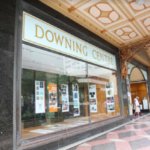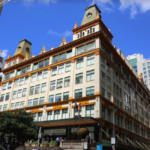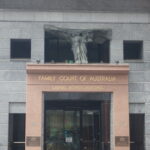What Will Happen to My NSW Local Court Case During Lockdown?

The Chief Magistrate of New South Wales, Judge Graeme Henson AM, has issued Memorandum No. 19 COVID-19 which applies to the following Local Courts in Greater Sydney and regional NSW until at least 9 July 2021:
| Albion Park | Bankstown | Blacktown |
| Burwood | Campbelltown | Fairfield |
| Gosford | Hornsby | Katoomba |
| Liverpool | Manly | Mount Druitt |
| Newtown | Parramatta | Penrith |
| Picton | Port Kembla | Sutherland Sydney |
| Central | Sydney Downing Centre | Waverley |
| Windsor | Wollongong | Wyong |
For all other Local Courts, Memorandum No. 18 of COVID-19 continues to apply.
Defended hearings
Defended hearings in the listed courts will no longer proceed.
However, the matters will remain listed on their existing dates for ‘mention’.
A mention is a procedural court date to determine the status of the case, and to deal with it in accordance with the law and Local Court Practice Directions – which may involve adjourning the matter for another mention and making orders pending that future date, or setting it down for a fresh hearing date.
The participants in the proceedings – including the defendant, defence lawyer, prosecution and witnesses – are not required to attend court on the currently listed court date.
Rather, the parties (normally the defence and prosecution) are required to prepare and send an email to the court by 3pm on the day before the listed court date advising of the status of the case and the orders that are sought.
What is a defended hearing?
A defended hearing is the day on which witnesses attend court, testify on the witness stand, and when the parties make submissions, before the magistrate decides whether the defendant is guilty or not guilty of the charge or charges brought.
During the hearing, the magistrate acts as both the judge of the law as well as the judge of the facts; the latter being the role of a jury in a District or Supreme Court trial.
The magistrate is therefore responsible for applying the law to the facts and delivering a verdict of guilty or not guilty based on that process.
If a not guilty verdict is reached, the charges are dismissed and the proceedings are finalised.
If a guilty verdict is reached, the case proceeds to a sentencing hearing – when the magistrate determines the appropriate penalty.
A sentencing hearing may occur on the same day as the defended hearing, or on a future date set by the court.
Defendants who are found guilty and sentenced in the Local Court have a right to appeal to the District Court on the ground they are not guilty – which is known as a ‘conviction appeal’ – and/or on the ground that the penalty imposed was too harsh- which is known as a ‘severity appeal’.
Where the defendant was in attendance at the hearing, the appeal must be filed within 28 days, or within 3 months with the ‘leave’ (permission) of the District Court if the extension is in the interests of justice.
Sentencing hearings
A sentencing hearing occurs after a defendant pleads guilty or is found guilty of a criminal offence.
The Chief Magistrate’s latest Memorandum makes clear that these matters will proceed as listed wherever possible.
It states that where a participant – such as the defendant – is prevented from attending court, he or she must contact the court by 3pm on the day before the hearing to seek:
- An appearance in writing,
- An attendance by an alternative means, such as by telephone or audio-visual link, or
- An adjournment, which is where the case is postponed until a specified future date.
Mentions
As stated, a ‘mention’ is a short procedural court date to determine the status of a case and deal with it appropriately – whether by seeking another court date with orders that the prosecution serve the brief of evidence on the defence, to enter a guilty plea and set the matter down for a sentencing hearing, to seek a date for a defended hearing, or otherwise.
The Memorandum makes clear that the preferred means of dealing with these matters is online, or by telephone or audio-visual link.
The court will continue to accept ‘written notices of pleadings’ by email. These notices are often on the back of court attendance notices issued by the police, which a defendant may complete and send to the court advising whether a plea of guilty or not guilty is being entered.
In the case of a guilty plea, the defendant can outline matters he or she believes are relevant to determining the appropriate penalty, and the magistrate may issue a penalty based on these matters.
However, defendants should be aware that written notices of pleadings are not always a good substitute for attending in person, or having a lawyer attend and making submissions, as these documents may not be as thorough and persuasive as submissions in court.
In addition to this, certain sentencing options – such as conditional release orders without a conviction – may be unavailable to the magistrate unless the defendant attends court ‘in person’ – which includes via telephone or audio-visual link.
Masks
Masks are required to be worn in all of the listed courts.
The exceptions are as follows:
- A person may remove a face mask in circumstances where the person’s role at work requires them to enunciate clearly or the visibility of their mouth is necessary, and
- A person may remove a face mask if they work alone in an area, such as chambers or an office, however the person is required to wear a mask if another person enters the area.
Magistrates will determine other requests for exemptions.
Small Claims Court hearings
Small Claims court hearings will continue where possible, but will proceed by telephone.
Parties are required to provide all statements to the court by email no later than 3 days before the hearing.
A party who objects to the hearing proceeding in this manner should notify the court as soon as possible.
Going to court?
If you have a criminal or traffic matter that is listed in a New South Wales court, call Sydney Criminal Lawyers anytime on (02) 9261 8881 to arrange a free first conference over the phone, by Zoom or at our Sydney CBD or Parramatta Offices, both of which are operating in a COVID-safe environment during lockdown.






